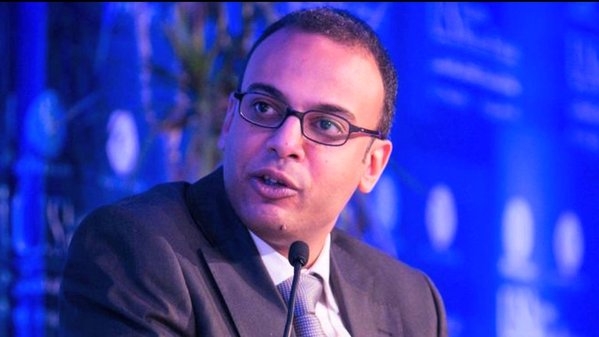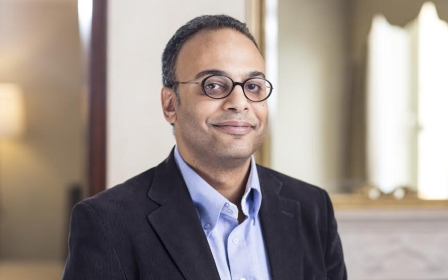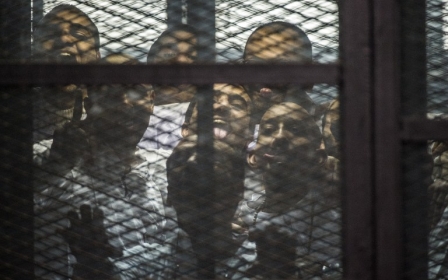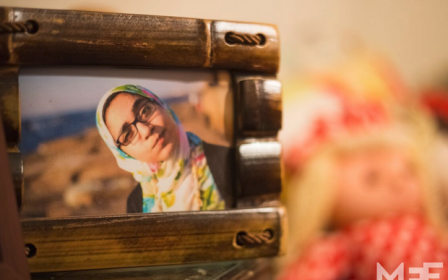Egyptian journalist reveals reason for his detention

The released Egyptian journalist and human rights activist Hossam Bahgat has revealed to the media the details of his three-day detention.
An investigative piece he had published on the detention of 26 military officers over accusations of planning a coup, was the reason behind his interrogation, he said in a statement on Facebook.
An Egyptian military court had handed down various sentences to the 26 military officers, four of whom are reportedly retired, investigated in Bahgat's piece. They were tried for planning a military coup.
In the statement published on Tuesday night, Bahgat, an investigative reporter for the local independent news website Mada Masr, documented the events that took place during his interrogation by Egyptian military intelligence.
He was summoned from his Alexandria home early on Sunday morning and held inside military intelligence headquarters for more than 12 hours.
He was released three days later on Tuesday afternoon after signing a statement pledging not to write about the military again.
“I will abide by all legal and security procedures for publishing any information about the armed forces," Bahgat recounted the statement as reading.
“I was also not subjected to any moral or physical harm,” the document stated.
Bahgat was taken to the military intelligence services building near Rabba Square on Sunday morning. He was not given any reasons for being summoned and upon his arrival he was transfered to the military prosecutor, he recounted.
Throughout the interrogation, investigators told him the had no legal protection nor would he recieve any support from the journalists syndicate since he was not registered as one.
Bahgat said the investigators requested several times that he give up his right to a lawyer. When he resisted, Bahgat was allowed to make a single phone call to tell a friend of his location and need for a lawyer.
"I was taken to an unknown location and made to stand in an outdoor area. A doctor came and asked me if I had any medical condition or was on medication.
"He then conducted an examination on my body after asking me to take off my shirt and trousers.
"They took all my personal belongings including my eyeglasses and I was then placed in a dark, empty cell. There was nothing in the cell but a few blankets on the floor."
Throughout most of these events, Bahgat says he was blindfolded and had no idea where he was or who he was speaking to.
"They didn't tell me who they were but mentioned that the interrogation would be over by morning."
At the end of his statement Bahgat called for the release of thousands of detainees in Egyptian prisons and for journalism to be decriminalised in Egypt.
"The law should not be used to criminalise and detain journalists or civil activists, nor should they be sent to military courts," he wrote.
According to Ragia Omran, a member of his legal team, Bahgat was eventually charged under articles 102 and 188 of the penal code, which refer to the spreading of false information.
In a statement, Amnesty International said Bahgat’s interrogation “is a clear signal of the Egyptian authorities’ resolve to continue with their ferocious onslaught against independent journalism and civil society.”
Others still detained
But while Bahgat is now free, several journalists and civil society activists are still in detention.
Salah Diab, owner of Al-Masry Al-Youm newspaper, and his son who were arrested on the same day as Bahgat and remain in detention pending investigations into charges that they possessed illegal firearms.
At the same time, Hesham Gaafar, the chairman of Mada Foundation NGO and Hossam el-Din el-Sayed, both members of the journalists syndicate, are in detention.
Commenting on Gaafar’s detention, Nagwan al-Ashwaal, a political researcher and PhD candidate at the European University Institute, said: “The accusations he faces are that he carried out research without taking permission from the national security services.”
Gaafar was arrested on Wednesday from the NGO's premises after security forces raided it, before being led to his home which was searched.
His arrest was condemned by many including Amnesty International, which described it as "unlawful".
Also under arrest is Azza el-Henawy, a journalist who criticised the government over the floods in Alexandria, which have led to the death of at least seven people.
“All Azza did was say that the law should be abided by and everyone including the government should be held accountable,” explained Ashwaal as the reason behind her detention.
“When it comes to academic freedoms and freedom of expression, Egypt today is much worse than during Mubarak’s time. The government is demonstrating that it is not ready to hear any criticism. It is closing down every public and civil available,” Ashwal told MEE.
New MEE newsletter: Jerusalem Dispatch
Sign up to get the latest insights and analysis on Israel-Palestine, alongside Turkey Unpacked and other MEE newsletters
Middle East Eye delivers independent and unrivalled coverage and analysis of the Middle East, North Africa and beyond. To learn more about republishing this content and the associated fees, please fill out this form. More about MEE can be found here.




